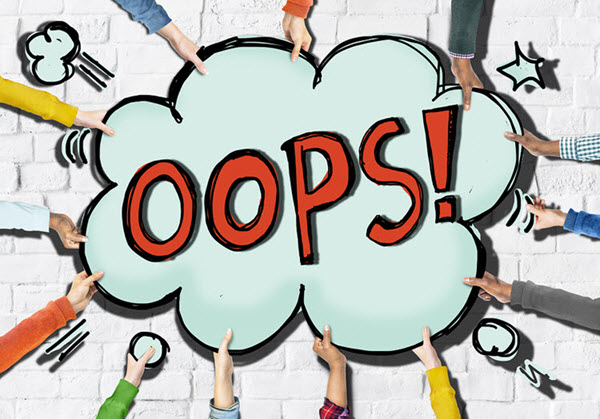When I woke up this morning, convinced it was February 29, I thought to myself, “leap year!” Then I flicked on my phone and saw March 1. Yikes! Really? Is it a new month, already? What did I miss?

I hopped on a few other devices to confirm the fact that it was March, not February, and dismayed when I saw the date consistently displaying a one rather than a 29 — what was on my to-do list for the last day of the month suddenly went from important to urgent (bills due on the first) — so I jumped on the phone and took care of business.
Phew! Thank goodness for 24/7 automated billing menus that actually work!
Now, having a “flexible“ schedule — in other words, I work any day of the week, and frequently seven days of the week — I may not always know whether it is Tuesday or Wednesday, but I generally know when the month ends and a new month begins. Among other things, I have a small calendar that sits on a nearby dresser that I use to make a few daily notes.
So what happened? And what does this mean?
Wondering if I’ve somehow lost my grip (in ways that are unusual that is), I searched my memory in as organized a fashion as I could (before coffee) to discern what could have gone awry. Ah… I found the culprit. The dental appointment that I have today says Thursday, February 29. And since I don’t especially enjoy going to the dentist — no offense to my lovely hygienist and her equally calmly competent boss — I had somehow imprinted that image (and date) on my mind. And it stuck.
I also found myself slightly disappointed. I love the first day of a new month. And I felt as though I hadn’t been able to enjoy looking forward to its arrival. That sounds silly, I know.
All fun with fillings aside, why are endings and beginnings so significant to some of us? Why do we take pleasure in the beginning of a new year or the beginning of a new month? Isn’t it because we have a sense of a fresh start and clean slate? For those of us who diet, for example, we feel like, “OK, I can start again this month and do better.“ For those of us who are determined to stick to a budget, likewise.
Another reason — when we have project-oriented timelines centered around each month, the beginning of a new 30-day period resets dollar amounts and measures critical milestones.
 The beginning of March, for those of us who weary of winter, is also hopeful in so far as it promises that spring is, if not right around the corner, at least closer to us than winter has been. No offense to the groundhog.
The beginning of March, for those of us who weary of winter, is also hopeful in so far as it promises that spring is, if not right around the corner, at least closer to us than winter has been. No offense to the groundhog.
And for me, personally, March has always brought with it a wash of relief and a sense of excitement, perhaps because by the end of the month, we begin to see tangible signs of spring’s rebirth, and nature in her renaissance is immeasurably inspiring.
Do you love the start of a new month? Are you ready for spring? Ever forget (like I do) what day or date it is?
You May Also Enjoy
This is so funny–I picture a woman frantically going through calendars and electronic devices to verify the date. Papers flying through the air…
I tell my family that if something isn’t written in my calendar it doesn’t exist. I still don’t do electronic calendars–gimme paper.
Re dentists: hygenists don’t seem to exist in France (or Belgium). The dentist him/herself cleans one’s teeth. I asked about this, and the dentist was scandalized–how would a problem be detected if such important work were delegated? BTW, full cost of a checkup at the dentist is €43. Socialized insurance reimburses most of that.
Re flexible work: I keep hearing/reading about how people LOVE the gig economy and flexible work. However, I don’t know a single person actually working in the gig economy/freelance work/contract work who is happy about it (self included). They all work 24/7, 7 days a week. If there’s no actual work on the table, then it means they have to scrape around for new work. It’s a nightmare. I hope you’re one of the few doing well with “flexible” work.
Nodding at much of your response…
As for the gig economy?
It’s rough, especially as we get older. Age bias is real, and in a gig economy, there is zero safety net, there are zero employment protections.